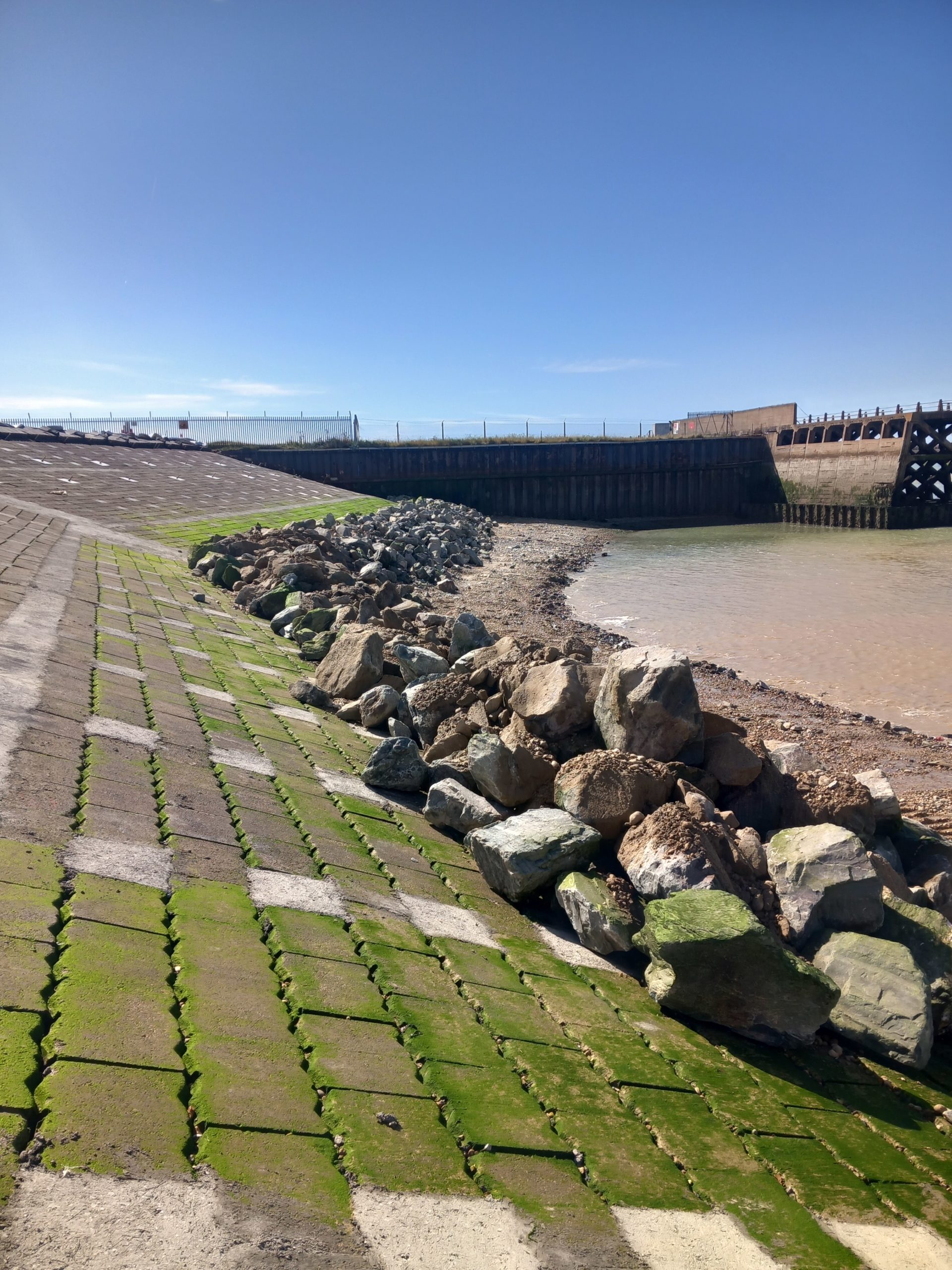
Coastal erosion is a significant environmental concern affecting coastal regions across the UK, and Newhaven, East Sussex, is no exception. This small town near Brighton has been grappling with the forces of nature that steadily erode its harbour revetment each year.
To help combat this issue, the delivery of substantial rock loads to reinforce the riverbank and protect it from further degradation is underway thanks to the combined efforts of Aggregate Industries, Jackson Civil Engineering and Newhaven Port Authority, which together, are coordinating this harbour revetment recharge programme to safeguard the coastline.
Forming a resilient barrier against the sea, a total of 820 tonnes of angular rocks were being deployed at Newhaven harbour revetment, varying in size from that of a football to the dimensions of a fridge freezer. On average, there are about four to five rocks per tonne, each of which is carefully selected to ensure they interlock and provide maximum resistance to wave action.

Richard Allen, Business Manager, from Aggregate Industries, comments:
“As highlighted in our recent coastal erosion report, climate change is significantly impacting the UK and it is estimated that approximately 58% of coastal erosion, sea level rise, and storm surges can be attributed to climate change.
“Beach erosion, in particular, occurs when waves and tides relentlessly wear away the shoreline, displacing sand and other sediments. This natural process, while part of coastal dynamics, can lead to significant land loss and habitat destruction if left unchecked. In Newhaven, this line of aggregates which we’re supplying, is being placed where the harbour revetment erosion is most severe.”
Aaron Acton, a Foreman from Jackson Civil Engineering, who was involved in the project, says:
“The placement of these rocks is critical. At high tide, the sea brings in sands that wash over the top of the rocks allowing the sands to settle and remain in place and the rocks then prevent them from being washed out to sea. This method, known as beach recharge, helps to build up the harbour revetment, creating a buffer that absorbs wave energy and reduces the impact of erosion.”
Richard continues:
“Harbour revetment recharge projects like this one in Newhaven and other beach recharge projects are vital in the broader context of coastal management. They provide a sustainable solution to the ongoing challenge of beach and riverbank erosion, helping to preserve coastal areas for future generations. By reinforcing the shoreline with our carefully placed aggregates, we can protect infrastructure, natural habitats, and recreational spaces from the destructive forces of the sea.”
Through the collaborative efforts of these three organisations, this project aims to create a more resilient coastline that can withstand the pressures of nature, ensuring the harbour remains operational for many years to come.
The project is anticipated to be complete in August 2024.



